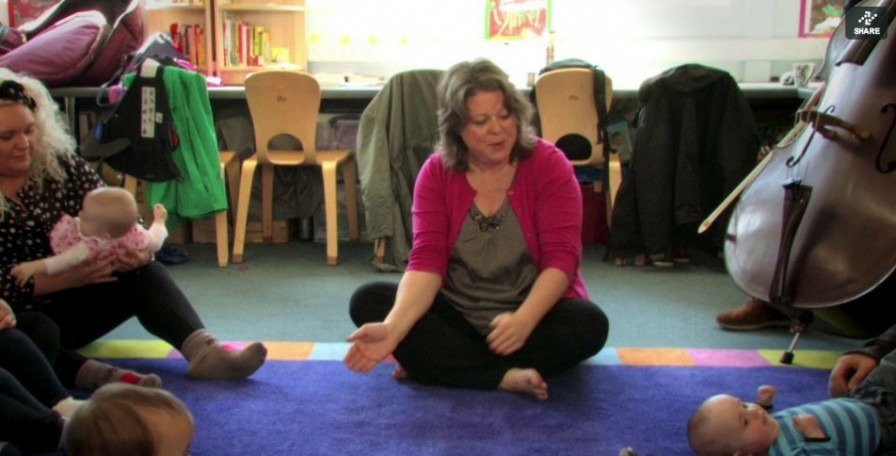LSO Discovery: Children's musical development

LSO Discovery, the London Symphony Orchestra’s community and music education programme, has a long-standing early years strand and offers a range of opportunities in music for young children and their parents including weekly sessions, workshops and family concerts. This resource was created for the Youth Music Spotlighting module by Dr Susan Young, lecturer at the University of Exeter and Alison Harmer, film maker and editor, with the support of LSO Discovery.
An aware practitioner will develop activities with consideration for each child’s capabilities.
One of the areas of expertise that practitioners working in early years music will require is a knowledge of how children might typically progress in all areas of musical activity - their singing, their moving to music, their rhythmic abilities, their listening and participating with others. Educational practice has moved on from having rigid ideas of development (first children should do this and next this) and now recognises that children’s social and cultural experiences of music are all very different. But being able to make broad predictions about what children of certain ages might typically be able to do and how they learn, allows music practitioners to plan their work intentionally so that children make progress.
In the book Music with the Under Fours I give an outline of children’s typical musical development and how adults might support their development. I stress again that this is only to provide a template for planning practice and children are all individual and will make music in their own unique ways.
The most important skill for the adult practitioner is to learn to observe the children very attentively to see what they are able to do and perhaps what they are not able to do. With group work when the adult is busy introducing and guiding the activities it is particularly challenging to also be alert to each child as an individual and what they are doing. All too often adults are busy teaching but with a low level of awareness of exactly how the children are participating.
Vanessa deliberately looks all the time from child to child and listens very attentively. This allows her to adjust what she is doing so that children can achieve more. She might, for example, change the pace of a song to fit their movements better, or she might change the pitch of a song so that individual children can ‘get on board’ with singing more easily. Although most activities are directed at the group as a whole, she often has ways of allowing children to contribute something individually (offering a movement and setting the style and pace of that movement, or singing a solo response in a song) and these strategies allow group practice to be differentiated to individual children.
Click on the links at the bottom of the page to see more videos and notes on key aspects of the LSO’s early years programme.
Read the full LSO Discovery report below:
